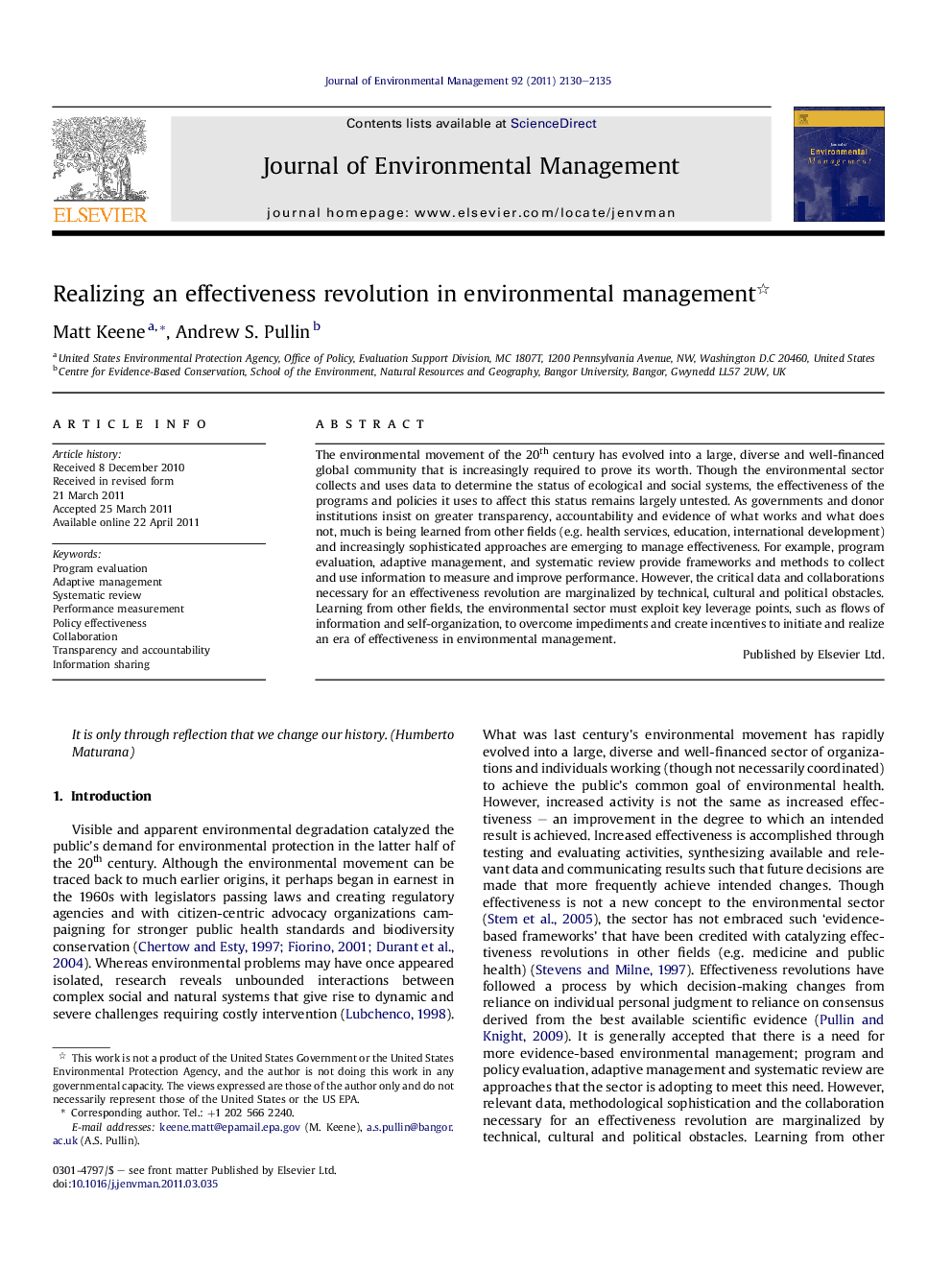| Article ID | Journal | Published Year | Pages | File Type |
|---|---|---|---|---|
| 1056996 | Journal of Environmental Management | 2011 | 6 Pages |
The environmental movement of the 20th century has evolved into a large, diverse and well-financed global community that is increasingly required to prove its worth. Though the environmental sector collects and uses data to determine the status of ecological and social systems, the effectiveness of the programs and policies it uses to affect this status remains largely untested. As governments and donor institutions insist on greater transparency, accountability and evidence of what works and what does not, much is being learned from other fields (e.g. health services, education, international development) and increasingly sophisticated approaches are emerging to manage effectiveness. For example, program evaluation, adaptive management, and systematic review provide frameworks and methods to collect and use information to measure and improve performance. However, the critical data and collaborations necessary for an effectiveness revolution are marginalized by technical, cultural and political obstacles. Learning from other fields, the environmental sector must exploit key leverage points, such as flows of information and self-organization, to overcome impediments and create incentives to initiate and realize an era of effectiveness in environmental management.
► The effectiveness of the environmental sector's programs and policies is untested and unproven. ► It is learning measurement and evaluation (M&E) from other sectors. ► Quality M&E requires greater data access and collaboration. ► Technical, cultural and political obstacles are impediments to M&E. ► Transparency, rules and incentives will help to initiate an effectiveness revolution.
